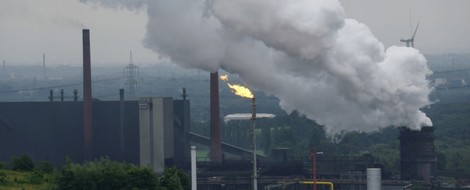Your podcast discovery platform
Curious minds select the most fascinating podcasts from around the world. Discover hand-piqd audio recommendations on your favorite topics.

piqer for: Globalization and politics Climate and Environment Technology and society Boom and bust
Cristina is a Spanish journalist based in London, she holds master’s degree in Journalism, Media and Globalisation at City University London and Aarhus University (Denmark). She has a keen interest in sustainable development and human rights and she curates -mostly- stories related to the Sustainable Development Goals. She has previous worked for United Nations and now collaborates with various publications such as El País, Chatham House, Huffington Post, Equal Times or eldiario.es.
Is There A Future For Old King Coal?
Coal usage is decreasing. May this be the beginning of the end? The most polluting major fossil fuel is no longer the cheapest energy source in many markets, and in places where it is, governments are starting to acknowledge the social and environmental costs of its use. Look for instance at the intense debate that is taking place in Germany around the phase-out. In fact, at least 10 coal-burning EU countries have pledged to eliminate coal between now and 2030. However, the transition is not at all rosy, and as this piece highlights, global trends uncover different realities.
“The future of coal remains an urgent question. Global trends mask different regional stories – while climate and air quality policies, the emergence of shale gas and the collapsing cost of renewables have all added to coal’s decline among many member states of the Organization for Economic Cooperation and Development (OECD) and in China, rising demand in parts of Asia have largely offset these falls.”
The good news is that even the biggest coal producer and consumer, China, is proactively phasing out coal use due to, among other reasons, air pollution. India, too, shares ambitious renewable targets. The not-so-good news: other parts of the world are trying to revitalize coal (and not only Trump). For instance, industry in Australia is far from diversifying their assets, and is instead becoming more and more aggressive, lobbying for new markets.
“Coal exports occupy a central role in Australia’s bilateral relationships in the region, and it reportedly lobbied the new Asian Infrastructure Investment Bank (AIIB) to fund coal. In a move likened to ‘selling tobacco at a cancer conference’ the US sought to strike coal deals with developing countries at the last UN Climate Summit.”
This is an interesting and provocative analysis of a fossil fuel that will still be hanging on for at least a decade to come.
